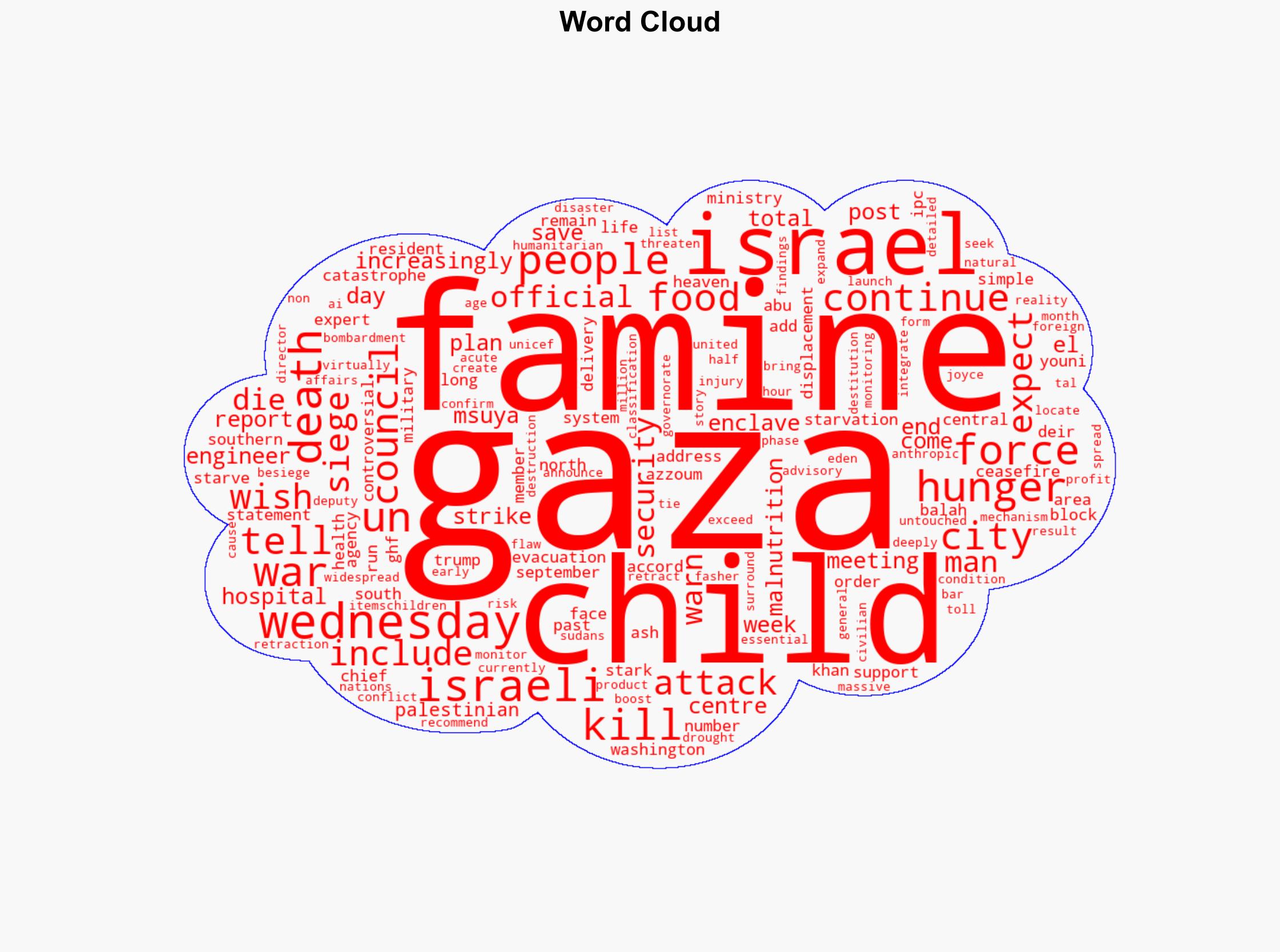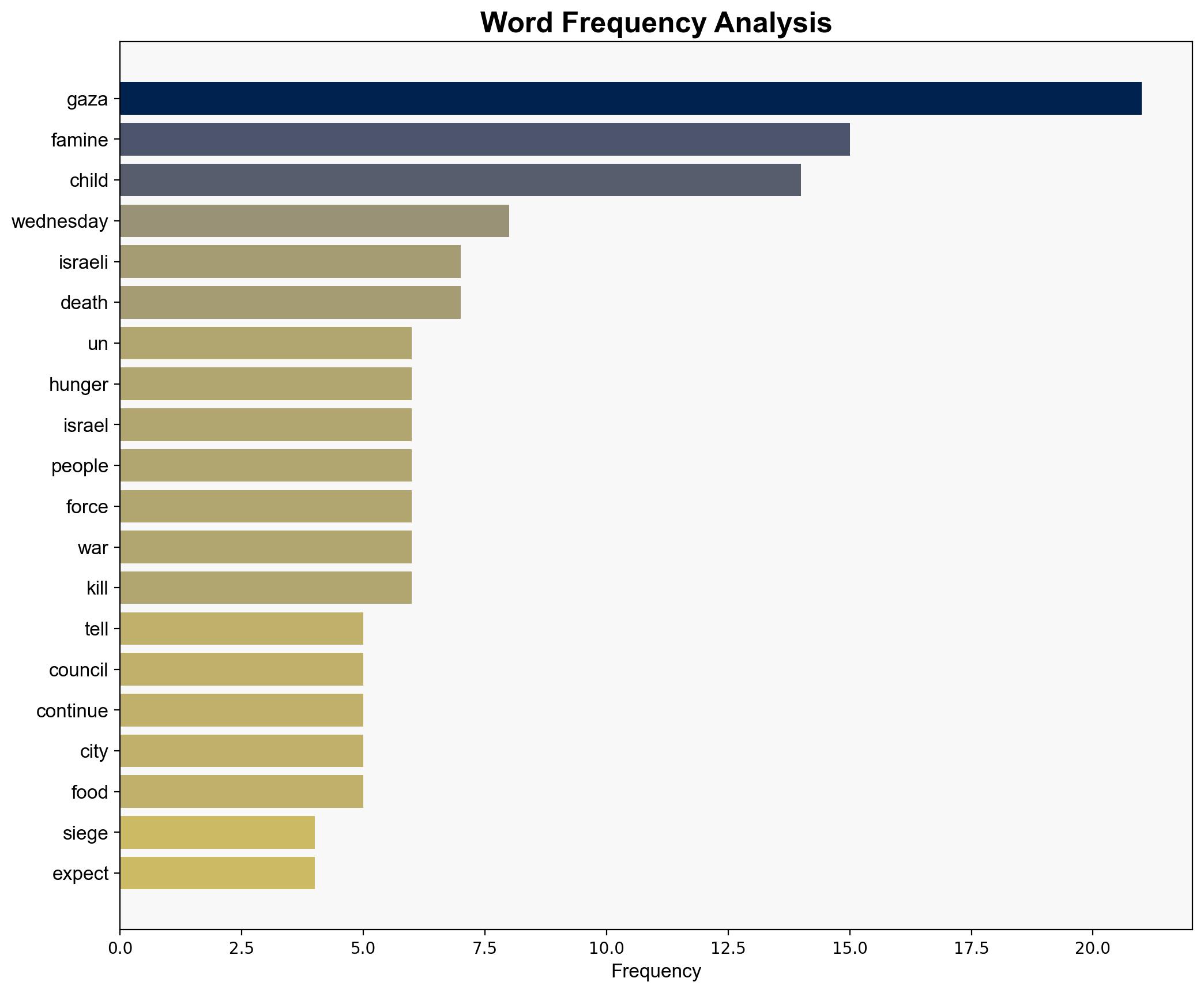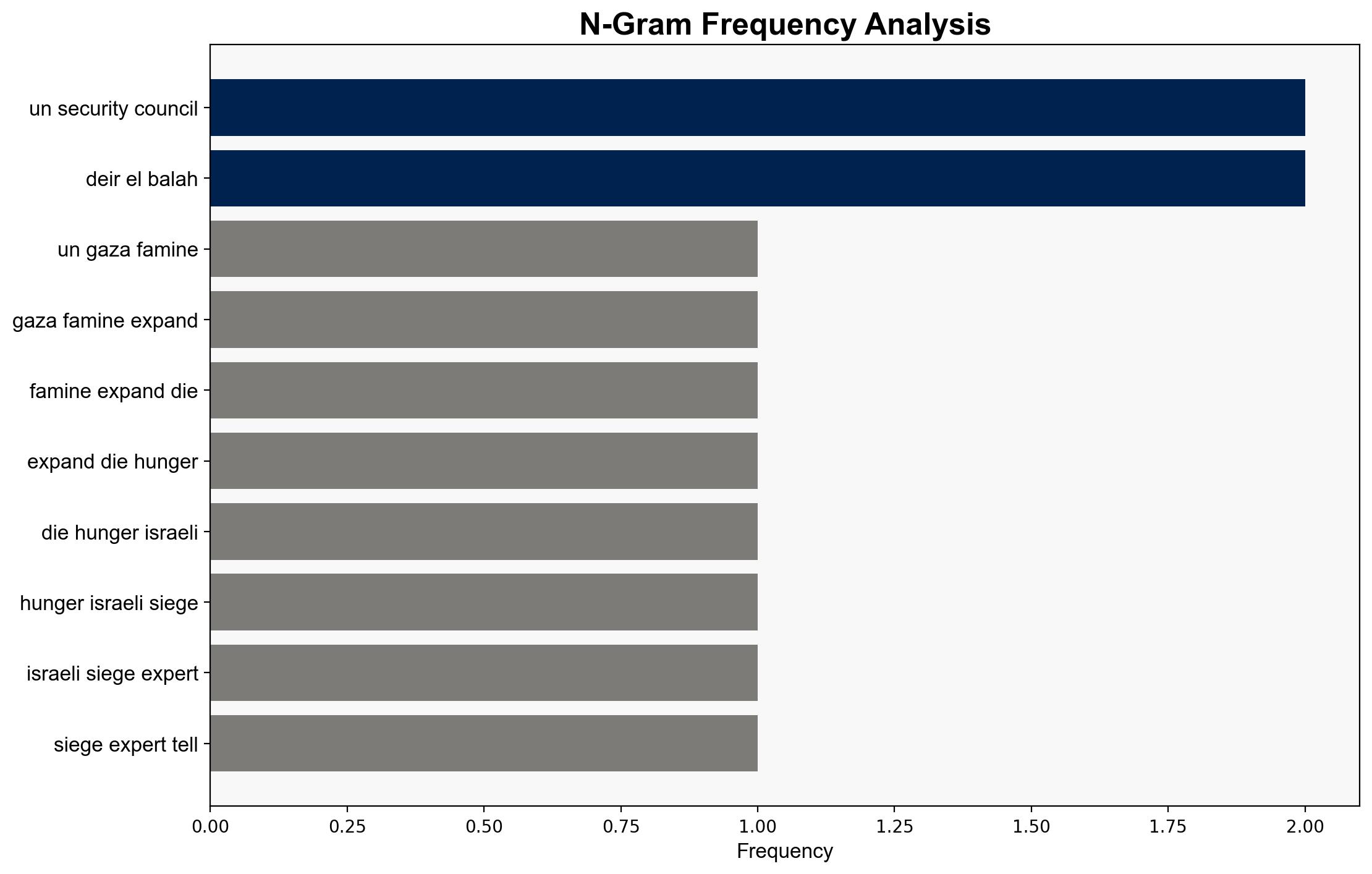UN warns Gaza famine expanding as aid groups decry Israeli siege – Al Jazeera English
Published on: 2025-08-27
Intelligence Report: UN warns Gaza famine expanding as aid groups decry Israeli siege – Al Jazeera English
1. BLUF (Bottom Line Up Front)
The most supported hypothesis is that the famine in Gaza is primarily a result of the ongoing Israeli siege, exacerbating an already dire humanitarian situation. This is supported by multiple UN reports and statements from humanitarian organizations. Confidence in this assessment is moderate due to conflicting narratives and the complex geopolitical context. Recommended action includes advocating for increased humanitarian access and international diplomatic engagement to address the crisis.
2. Competing Hypotheses
1. **Hypothesis 1**: The famine in Gaza is primarily caused by the Israeli siege, which restricts access to essential goods and services, leading to widespread hunger and malnutrition.
2. **Hypothesis 2**: The famine is a result of broader regional instability and internal governance issues within Gaza, with the Israeli siege being a contributing but not sole factor.
Using the Analysis of Competing Hypotheses (ACH 2.0), Hypothesis 1 is better supported by the evidence, including UN reports and humanitarian agency statements that directly link the siege to the worsening humanitarian conditions. Hypothesis 2 is less supported due to a lack of specific evidence pointing to internal governance as a primary cause.
3. Key Assumptions and Red Flags
– **Assumptions**: It is assumed that the reports from UN agencies and humanitarian organizations are accurate and unbiased. Another assumption is that the Israeli siege is the primary factor affecting humanitarian conditions in Gaza.
– **Red Flags**: Potential bias in reporting from both sides of the conflict. The possibility of information manipulation or propaganda to influence international opinion.
– **Blind Spots**: Limited access to independent verification of conditions on the ground in Gaza, which could affect the accuracy of the reports.
4. Implications and Strategic Risks
The continuation of the siege and resulting famine could lead to increased regional instability, potentially escalating into broader conflict. Humanitarian crises may trigger international interventions or sanctions, affecting geopolitical alliances. The psychological impact on the population could fuel radicalization and recruitment by extremist groups.
5. Recommendations and Outlook
- Advocate for an immediate ceasefire and the establishment of humanitarian corridors to allow aid into Gaza.
- Engage in diplomatic efforts to de-escalate tensions and promote dialogue between conflicting parties.
- Scenario Projections:
- **Best Case**: Ceasefire achieved, humanitarian aid flows into Gaza, reducing famine conditions.
- **Worst Case**: Escalation of conflict leading to broader regional instability and increased civilian casualties.
- **Most Likely**: Continued international pressure results in limited humanitarian access, but siege conditions persist.
6. Key Individuals and Entities
– Joyce Msuya: UN Deputy Humanitarian Chief
– Eden Bar Tal: Israeli Ministry of Foreign Affairs Director General
– Inger Ash: Save the Children Chief
7. Thematic Tags
national security threats, humanitarian crisis, regional focus, geopolitical tension



